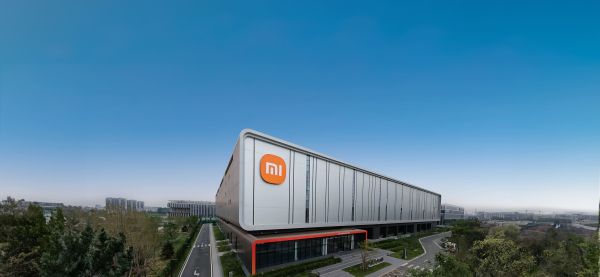Xiaomi Announces Global Eco-Friendly Management Strategy Through ESG Report
Jul 28, 2025
|
Sustainable growth with core technology
Xiaomi announced a new sustainability strategy based on core technologies at the 29th United Nations Climate Change Conference (COP29) held last year. The strategy strengthens technology development with accessibility and equity, and proposes a sustainable smart lifestyle to consumers through the 'Human x Car x Home' ecosystem.
In 2024, Xiaomi's R&D investment amounted to 24.1 billion yuan (about 4.6 trillion won as of July 24), and the cumulative number of global patent applications exceeded 42,000. 21,190 employees, or about 48.5% of all executives and employees, are R&D personnel, and cumulative R&D investment is expected to be more than 100 billion yuan (about 19 trillion won as of July 24).
In addition, Xiaomi Smart Factory and Xiaomi EV Factory began full-scale operation in 2024. The two factories are realizing an efficient and eco-friendly sustainable production system by combining industrial Internet and AI technology.
Based on various technologies, including its own development hardware and software, Xiaomi has built flexible production facilities, automatic logistics systems, and 'cloud-edge-device' automation systems in Xiaomi's smart factories. Through this, the automation rate of Xiaomi's smart factories reaches 81%, far above the industry average.
Technology for Everyone, Digital Accessibility for Everyone
Xiaomi continues to invest in strengthening accessibility for a wide range of users, including the disabled and the elderly, so that all users can enjoy the benefits of digital technology equally. In 2024, it strengthened functions for people with visual, hearing, and physical disabilities, and introduced text extraction, real-time subtitles, and gesture-based control functions.
For example, the voice support function 'TalkBack' for the visually impaired has been strengthened. It also provides a visual information narration function that accurately identifies texts in images and reads them in real time by utilizing the optical character recognition (OCR) function of the AI subsystem installed in Xiaomi HyperOS, its own operating system. Through this, users can enjoy a more natural and uninterrupted 'reading' experience.
In the latest version of Xiaomi HyperOS 2, AI Assistant's real-time captioning and Xiaomi's speech recognition features are seamlessly integrated to achieve high speech recognition accuracy of 93%.
Xiaomi is also actively developing technology for the elderly. In 2024, it launched the 'Consideration for Senior Health and Safety and Senior-Friendly Environment Improvement Project' in cooperation with related organizations. This project aims to jointly develop products and services and UI/UX design standards that can enhance the life safety and convenience of the elderly.
Climate Change Response Strategies for Future Generations
In addition to setting greenhouse gas reduction targets throughout its operations, Xiaomi is also calling on smartphone supply chain partners to set greenhouse gas reduction targets and plan to use renewable energy. As a result, smartphone business-related suppliers must achieve an annual average reduction of at least 5% in carbon emissions (as of 2024) and a renewable energy use rate of more than 25% by 2030. By 2050, we aim to use 100% renewable energy across the supply chain.
As of the end of 2024, Xiaomi has completed measuring the carbon footprint of a total of 18 flagship products, including 13 types of ▲ smartphones and tablets ▲ 1 type of wearable ▲ 4 types of smart home appliances. In addition, it has established a carbon footprint evaluation system for smartphone products in cooperation with independent certification bodies.
Climate change response is being implemented in an integrated manner across all business areas, including office work, production and manufacturing, logistics and transportation, store operation, and supply chain. Last year, Xiaomi acquired ISO 50001 Energy Management System certification, an international standard for energy use efficiency management, for major workplaces and also passed the annual monitoring review.
In addition, it actively expanded maritime and rail transportation instead of air transport to reduce carbon emissions, and achieved a reduction of about 3,378 tonnes of carbon emissions in 2024.
Connect to e-waste recycling, resource circulation, and eco-friendly production
Xiaomi operates an e-waste collection program worldwide and establishes a systematic resource circulation system that recycles prototypes in-house as well as proper disposal of trade-in (compensation sales), refurbishment (refund products), devices and parts. It has set a total of 38,000 tonnes of e-waste recycling target from 2022 to 2026, achieving 95.94% of its target as of the end of 2024.
More than 1.3 million used devices were collected through the trade-in program in mainland China alone, and a total of 23,353 returns were also processed in nine countries and regions abroad. It also expanded its refurbishment business area to laptops, projectors, and monitors, bringing the total to more than 130,000 devices over 2024. This is an increase of 4.7% year-on-year.
Moreover, Xiaomi is actively using recycled materials to design and produce major products such as smartphones, smart electric vehicles (EVs), and smart home appliances. For example, bio-based materials extracted from lemons were applied to the back cover of the smartphone Xiaomi 14T, which was officially released in Korea earlier this year, and more than half of the polyurethane materials used were extracted from bio-materials. In addition, recycled aluminum was used in the intermediate frame of the Xiaomi 14T, and the audio components were made of recycled aluminum, gold and copper.
Xiaomi Smart Plant has established a "Zero Waste to Landfill" integrated system, and the WDR (Waste Reclamation Conversion Rate) recorded 99.35% as of 2024. Through this, the German certification body 'TV Rheinland' acquired the world's highest rating of Zero Waste to Landfill Management System Certificate, three stars.
Xiaomi plans to present a better future to the next generation through sustainable innovation and continue to strengthen its position as an eco-friendly technology company.
This article was translated by Naver AI translator.














